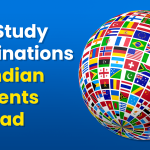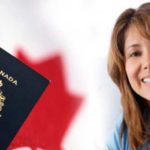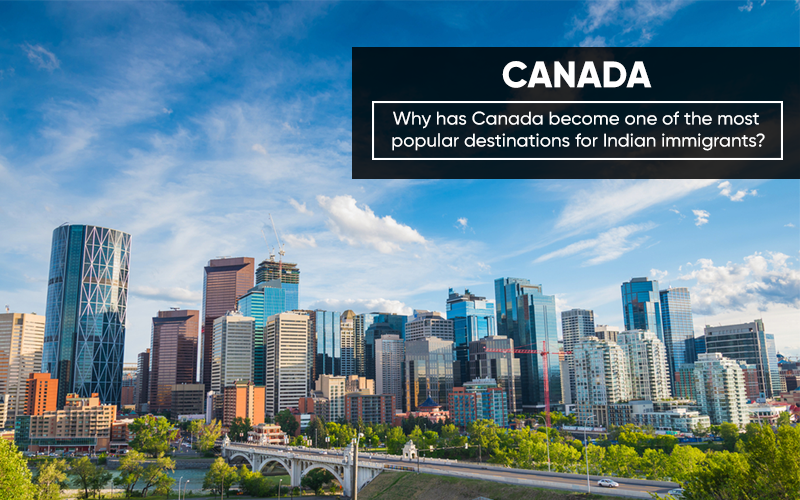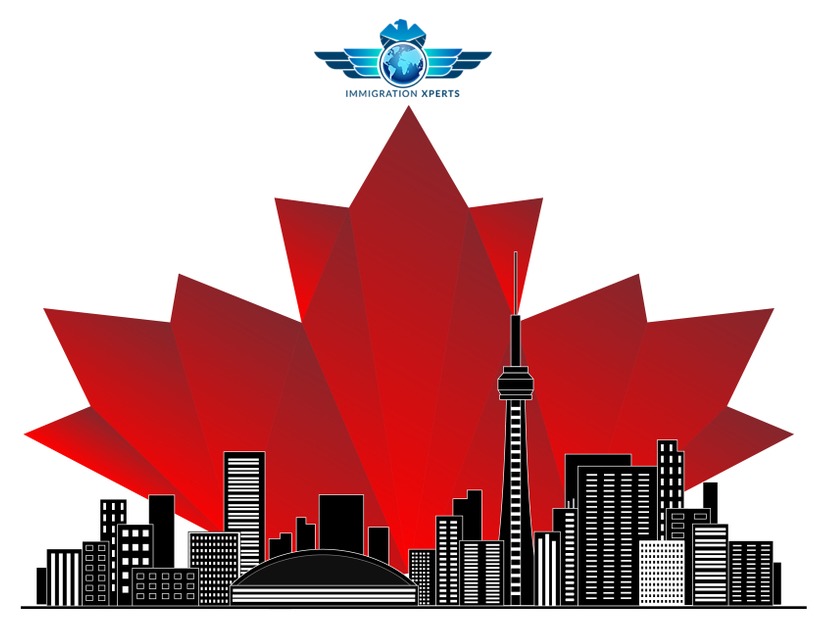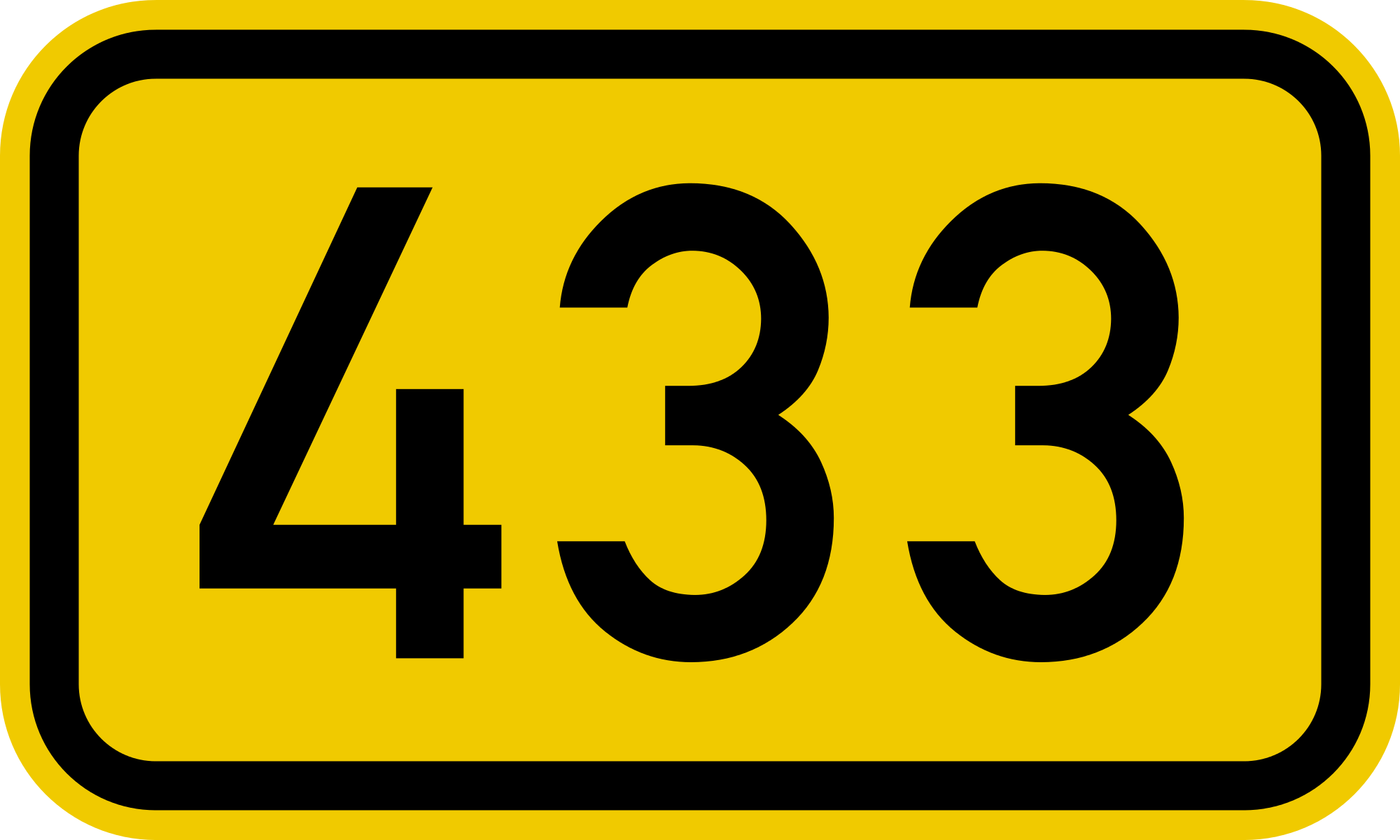In 2021, Canada's immigration systems faced considerable difficulty and delays as a result of policy changes in reaction to the COVID-19 pandemic. Many candidates inside Canada were provided new immigration programmes and policies in 2021 to make it easier for them to stay, but many applicants outside Canada were excluded from consideration due to the country's COVID-19 regulations. With the year 2021 coming to a close in a couple of weeks, it's time to think about what to anticipate in terms of Canadian immigration in 2022.
In 2022, Canada hopes to welcome 411,000 new immigrants. While this would ordinarily not be a problem for Canada, the country has struggled to process applications in a timely way over the last year, resulting in a backlog of 1.8 million applications awaiting processing. If Immigration, Refugees and Citizenship Canada (IRCC) can get its backlog under control, 2022 might be a record-breaking year for Canadian immigration.
Let's look at all of the aspects that will impact Canadian immigration in 2022.
Existing immigration backlog
Applicants whose applications are presently being processed by Immigration, Refugees and Citizenship Canada (IRCC) are aware that processing times have increased considerably starting March 2020. In 2019, an Express Entry application takes an average of eight months to be processed by IRCC. Due to the pandemic's effects, however, several applications received in 2019 and 2020 are just now being reviewed.
According to a study published in August by the Toronto Star, IRCC had backlogs of more than 561,700 permanent residence applications, 748,381 temporary residency applications, and 376,458 citizenship applications as of July 31, 2021. There are about 100,000 permanent residence applications pending in the Express Entry system that must be completed before Express Entry processing times may revert to their prior levels.
Despite the backlogs, Canada's Immigration Minister, Sean Fraser, has stated that he is open to expanding the country's immigration numbers, since immigration is an important part of the country's long-term economic plan. Minister Fraser has until February 2022 to produce an updated Immigration Levels Plan, so fresh immigration objectives should be announced soon.
What to expect for Express Entry draws in 2022
While Express Entry draws have continued throughout the pandemic, Express Entry draws in 2021 were very different from pre-pandemic patterns. Prior to the pandemic, an Express Entry draw typically took place once every two weeks and candidates from all Express Entry programs were considered in each draw. In 2021, all Express Entry draws were restricted to candidates in either the Canadian Experience Class (CEC) or Provincial Nominee Programs (PNPs).
This was a strategic decision made by IRCC in order to prioritize permanent residence applications from candidates who were already inside Canada in order to meet its high immigration targets while borders were closed. This is also why Canada invited more than 27,000 CEC candidates in a single Express Entry draw in February 2021.
Since September 15, 2021, Express Entry draws have been exclusively inviting provincial nominees. This is due to the existing backlog of immigration applications. IRCC cannot continue to issue large numbers of Invitations to Apply at this time as it does not have the capacity to process any new files. In a recent memo, IRCC has indicated that it will only resume all-program Express Entry draws once the backlog has been reduced — although they haven’t said how long this will take or how much of the backlog they need to get through.
IRCC has been working hard on clearing out this backlog. The department has spent more than CAD$15-million on overtime for its employees to work on this backlog between April and October of 2021 alone.
How will Express Entry candidates be selected in 2022?
Canada's Budget 2021: A Recovery Plan for Jobs, Growth, and Resilience was issued earlier this year. The budget for 2021 in Canada gave precise details about planned changes to Canada's immigration and immigration procedures. There were explicit remarks on the Express Entry system among the details. Improvements to immigration are promised in Budget 2021, including:
• deliver a modern immigration processing platform
• support racialized newcomer women
• enhance the Temporary Foreign Worker (TFW) Program
• accelerate pathways to permanent residence (TR to PR pathway)
• streamline Express Entry, and
• enhance capacity and service standards within the IRCC Client Support Centre.
The Government of Canada intends to propose amendments to the Immigration and Refugee Protection Act (IRPR) to prioritize the selection of Express Entry candidates who better meet Canada’s labour market needs.
Based on statements made in the Budget 2021, these changes could include changes to the existing Comprehensive Ranking System (CRS) scoring system, or they could make changes to which NOC codes will be eligible to use the Express Entry system. Before 2015, the Federal Skilled worker Program would only accept applications from 50 specified NOC codes that were in demand in Canada. If immigration officials feel that they are not tapping the best candidates at this time it is possible that they could start restricting NOC codes in 2022 (although we have no indication that this is being considered at this time).
The pandemic has taught us that immigration policies are extremely flexible. With a new Immigration Minister at the helm of the department, and with the country emerging from the crisis phase of the pandemic — there are many possibilities for the future of Express Entry. Only time will tell.
New National Occupational Classification (NOC) system being introduced
The government of Canada will be implementing new NOC Codes in 2022. This update will be known as the National Occupational Classification (NOC) 2021. Even though it states 2021, it will only come into effect in late 2022.
The new National Occupational Classification (NOC) 2021 will influence various Canadian government departments including IRCC. The new NOC codes will be 5 digits instead of 4. They will also be getting rid of the existing NOC Skill levels (level 0, level A, level B, level C and level D). These will be replaced by TEER levels which stand for Training, Education, Experience and Responsibility.
There will be 6 TEER levels consisting of 0, 1, 2, 3, 4 and 5. The former NOC skill level 0 and NOC skill level A will mostly remain unchanged, becoming TEER Levels 0 and 1, respectively. NOC Skill Level B occupations will be the most affected. 47 NOC Skill Level B occupations will be moved into TEER Level 3, with the other NOC B occupations moving to TEER Level 2.
At this time, Canada has not released any details about how the TEER Levels will be integrated into the Express Entry system. It’s possible that only TEER Levels 0-2 will be eligible for Express Entry, rendering some NOC Skill Level B occupations ineligible. However, it’s also possible that the eligible TEER Levels could include 0-3, thus expanding the list of eligible occupations for Express Entry. More details will become available in 2022, but it is something to be aware of, especially for candidates in those 47 NOC Skill Level B occupations that will be moved to TEER Level 3.
New application portals for Canadian immigration applicants
In 2021, the IRCC launched two new online application sites, which are critical for people planning to visit Canada in 2022.
Those applying for temporary residence visas (TRVs) or visit visas should go to the first portal. Those who applied for a TRV before September 7, 2021 may need to reapply in order for their application to be approved, according to IRCC. Applicants were asked to re-apply using the new IRCC portal.
It was critical to switch to the new TRV application system to guarantee that people who satisfied all of the conditions to come to Canada under the COVID-19 travel restrictions would have their applications processed. Applicants can now state that they fulfil the existing travel exemptions and are eligible to enter Canada at this time via the new site. By indicating this on their application, IRCC may focus on those applications where the applicant will be able to travel after their TRV is issued, rather than TRVs that cannot be utilised right now.
The TRV portal has just included the ability to apply for study permits. This portal is not to be confused with the prior IRCC Secure Account, often known as a GCKey.
The second new portal that IRCC introduced was the Permanent Residence Portal. This is a major change for those who are going to be submitting applications under one of the following streams in 2022 as they no longer have to mail in a paper-based application:
• Provincial Nominee Programs (PNPs) — non-Express Entry only
• Rural and Northern Immigration Pilot (RNIP)
• Agri-Food Immigration Pilot
• Atlantic Immigration Pilot Program (AIP)
• Start-Up Visa
• Self-Employed People (Federal and Quebec)
• Quebec-selected skilled workers, entrepreneurs and investors
• Spouse or common-law partner sponsorship
• Child sponsorship
• Parent & Grandparent sponsorship
• Home Support Worker & Home Child Care Provider Pilots
• Adopting a child through the immigration process
• Protected persons and convention refugees in Canada
• Humanitarian and compassionate grounds
• Temporary resident permit holders applying for permanent residence
New 2022 vaccination requirements for travel to Canada
Throughout the year of 2021, Canada has retained a number of travel exemptions for unvaccinated visitors who are visiting the country for specific reasons. However, from January 15, 2022, the number of exemptions will be drastically decreased, making vaccination necessary for many formerly exempt travellers. Since September 2021, fully vaccinated travellers have been permitted to travel to and from Canada, while additional travel rules still apply.
• Canadian citizens and Canadian permanent residents;
• immediate family members of Canadian citizens and Canadian permanent residents who are travelling to Canada for non-discretionary reasons;
• extended family members and long-term partners of Canadian citizens and permanent residents (or their partners) who apply for written authorization from IRCC;
• immediate family members of temporary residents in Canada who receive written authorization from IRCC;
• temporary workers who hold a valid work permit or who are approved for a work permit but have not yet been issued the work permit;
• COPR-holders with a valid COPR;
• IEC participants who have not yet activated their work permits must have a valid job offer in order to enter, this job offer does not need to be in an essential sector;
• international students attending a Designated Learning Institution (DLI) that is on the approved list (schools which have a COVID-19 readiness plan) and have either a valid study permit or a letter of introduction showing that they’ve been approved for a study permit;
International students, work permit holders (exemptions for agriculture and food processing workers), essential service providers, professional and amateur athletes, and those reuniting with family members in Canada will no longer be allowed to enter Canada unless they are fully vaccinated as of January 15, 2022. Unvaccinated youngsters under the age of 18 who seek to connect with family members or attend specific post-secondary institutions will continue to be exempt.
On January 15, 2022, unvaccinated or partially vaccinated travellers will only be allowed to enter Canada if they meet one of the limited exceptions, including:
• agricultural and food processing workers;
• foreign marine crew members;
• those entering on compassionate grounds;
• new permanent residents;
• newly resettled refugees;
• children under the age of 18 who are currently exempt from the travel restrictions, including international students who are studying at a designated learning institution that has a COVID-19 readiness plan; those travelling with a parent, step-parent, tutor or guardian who is either fully vaccinated, or a Canadian citizen, permanent resident of Canada or person registered under the Indian Act; and those travelling to reunite with immediate or extended Canadian family members in Canada; and
• national interest exemptions.
In order to be considered “fully vaccinated,” you must have received the full series of one of the COVID-19 vaccines approved for entry to Canada (or a combination of accepted vaccines). You must have received your last dose at least 14 days prior to travelling. As of November 30, 2021, Canada accepts seven vaccines: Pfizer-BioNTech, Moderna, AstraZeneca/Covishield, Johnson & Johnson, Sinopharm, Sinovac, and Covaxin. If you have been vaccinated using a different vaccine, Canada does not consider you fully vaccinated at this time.
Children under the age of 12 travelling with fully vaccinated parents/guardians can enter Canada and are exempt from quarantine requirements, but will have to follow certain special measures, like avoiding schools, camps, and daycares. Refer here for details about requirements for children under the age of 12.
Canada’s COVID-19 travel measures are subject to change at any time. For the latest information, please refer to Moving2Canada’s COVID-19 Travel Updates page.
New Canadian immigration regulatory board
The former Immigration Consultants of Canada Regulatory Council (ICCRC) became The College of Immigration and Citizenship Consultants on November 23, 2021. This new agency is in charge of supervising and regulating all Regulated Canadian Immigration Consultants (RCICs).
For individuals seeking assistance or guidance on their Canadian immigration application in 2022, this is a significant shift.
Individuals who give paid immigration or citizenship advice or representation must be approved under the Immigration and Refugee Protection Act (IRPA) and the Citizenship Act.
These Acts make it an offence for anyone to represent or advise for a fee at any stage of an application or proceeding if they are not a member in good standing of one of the following:
• a law society of a province or territory (for lawyers or, in Ontario, paralegals)
• the Chambre des notaires du Québec
• the College of Immigration and Citizenship Consultants
If the previous year is any indicator, the year 2022 will be full of surprises in the area of Canadian immigration. However, by being proactive, you may plan ahead for any immigration roadblocks.
At Immigration Experts, we guide your clients with the best possibilities of moving to Canada (https://www.immigrationxperts.com/canada-immigration/67-canada-immigration-point-system/) with regards to their professional background.
To Stay Updated on Canada Immigration News, Subscribe to Immigration Experts
NEWSLETTER: https://www.immigrationxperts.com/newsletter/
Fill up our Free Evaluation Form and take the initial step towards your Visa and Immigration Process.We are available for ONLINE CONSULTATION!
Contact Immigration Experts for FREE Points-Based Assessment of your profile: Drop us an email at: info@immigrationxperts.com
Give us a call at: +91-9999467686, 0120-6618011, 0120-6618123
Book your appointment with our experienced immigration counselors and solve all your immigration-related queries at the comfort of your home.
We are available on Skype: Immigrationxperts.com
Achieve your Immigration dreams with Immigration Experts


